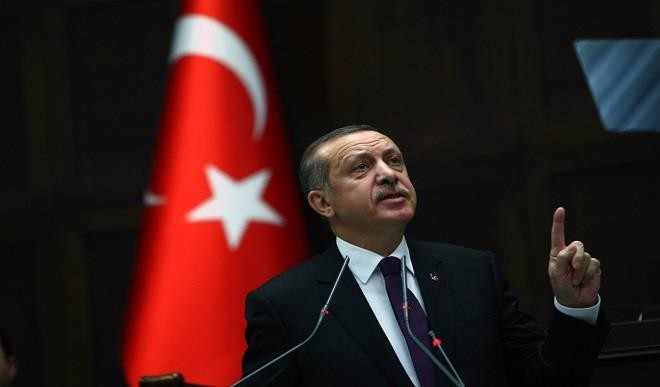When so-called NGOs go on sale
Turkey is independent, transited from a parliamentary unitary system of government to presidential under democratic rule, after it wrestled power from the military many decades ago. Turkey is a major actor in the politics of the Middle East and as well a dominant player in the politics of Europe because of its presumed economic and […]


Turkey is independent, transited from a parliamentary unitary system of government to presidential under democratic rule, after it wrestled power from the military many decades ago. Turkey is a major actor in the politics of the Middle East and as well a dominant player in the politics of Europe because of its presumed economic and trade ties, also its preparedness and commitment in the membership of the European Union EU.
Sadly, the government of Turkey headed by President Recep Tayip Erdogan has deviated from the democratic values as established by the constitution, which has always guided without bias the direction of governance and the role of citizens and respect for the rule of law. This distraction began when the government of Turkey focuses more on the fight against innocent citizens in the society like the Hizmet participants, alleged to have been responsible for the political uprisings in Turkey over time now.
Even, when its President lobbied the United States to extradite Fethullah Gulen, the founder of the organization, Washington had repeatedly said, there was no concrete evidence linking Gulen with the failed coup. Here in Nigeria, Hizmet members have been involved in legitimate business and legal investments in very notable sectors of the economy including education, health, foundations and charity, but the Turkish envoy in Nigeria has continued to pay the services of so called Non-Governmental Organizations (NGOs) to buy pages of newspapers to blacklist innocent citizens with legitimate source of livelihood.
President Erdogan could not have been exonerated from the alleged attacks by the state authorities against its citizens, the media and the civil society groups. Hundreds of journalists in Turkey have been killed and hundreds arrested and put in various detention camps established by President Erdogan for alleged participation in the last year’s coup attempt. Newspaper pages are bought by the Turkish envoy using the names of NGOs in Nigeria to sign vain materials published to denigrate the integrity of Hizmet, an organization known for peaceful initiatives, conflicts resolutions and inter-faith dialogue.
Ambassador Hakan Cakil has a major role to play in restoring peace to Turkey. As an ambassador, he is the head of representation of his country, at a vantage position to offer useful advice and chart a better policy direction for international diplomacy.
At the heat of the uprisings when Cakil officially wrote the Nigerian government to shut down all institutions and investments belonging to Hizmet members in Nigeria, he probably thought he was doing the right thing, as he further took the campaign to the Nigerian Minister of Education, declaring that Turkish government had concluded plans to award scholarship to all Nigerian students studying in Turkey, but on the contrary a few weeks later, Nigerian students in Turkey were arrested allegedly for being connected to the attempted military coup.
Today NGOs with little or no pedigree are sponsored to blacklist innocent citizens of Turkish extraction residing in Nigeria, even when it is very clear that the state of Turkey is yet to produce concrete evidences against the organization. So the Turkish envoy should learn from Nigeria’s way of life, both in governance and approach to official matters because we have respect for our citizens.
An Islamic scholar involved in inter-faith dialogue across the globe can hardly turn a terrorist bombing and killing innocent citizens in Turkey. The U.S intelligence is too strong to be undermined. Fethullah Gülen would have been identified as the man behind the mask and his trial and extradition would have been concluded and forgotten. Turkish authorities should forget questionable NGOs and look for reliable and cogent reasons for attacks on Hizmet members, to tell a story that is believable.
Uket wrote in from Abuja.
